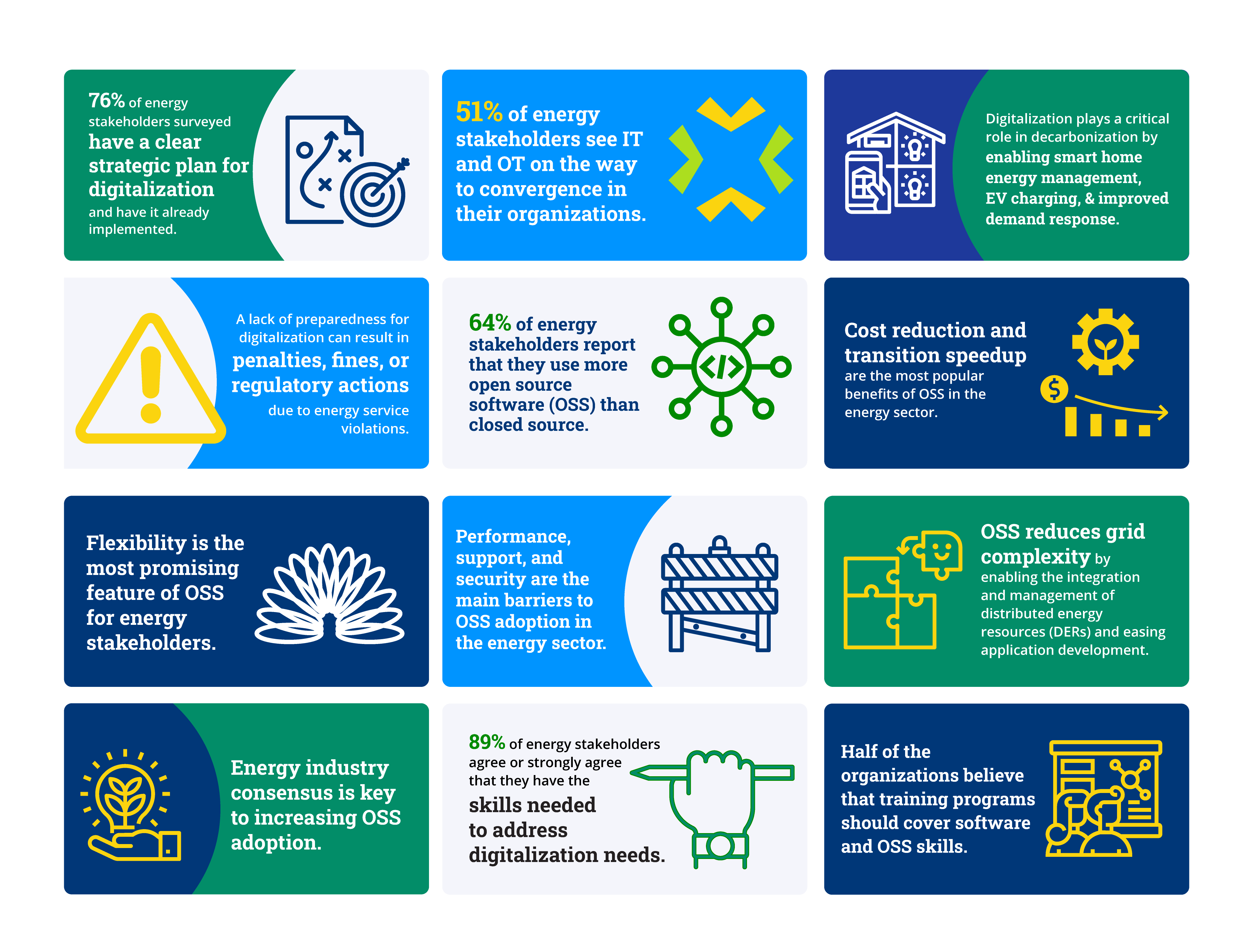Energy Sector in Midst of Major Transformation, With 76% of Utilities Implementing Digitalization Plans, and 64% Using Open Source to Accelerate Innovation
New research report from Linux Foundation Energy also finds that over half of energy stakeholders are converging IT with OT
PARIS, FRANCE – LF Energy Summit – June 1, 2023 – LF Energy, the open source foundation focused on harnessing the power of collaborative software and hardware technologies to decarbonize our global economies, today released the “2023 Energy Transformation Readiness Study”. The report, developed in partnership with LF Research, Linux Foundation Training & Certification, G-PST, RWTH Aachen, and Zpryme, provides survey-based insights into energy sector digitalization through open source.
Headline findings include 76% of energy stakeholders surveyed reporting their organization has a clear strategic plan for digitalization, and that t hey have already begun implementing it. Additionally, 64% of energy stakeholders use more open source software than closed source, however a plurality (43%) believe energy industry consensus is still key to increasing OSS adoption.
Respondents in the Asia Pacific region were found to be the furthest ahead with implementing digitalization plans at 84%, followed by North America at 78%, and Europe at 62%. Nearly all respondents who have not already begun implementation already have a plan in place and ready to be implemented, or well into development.
“We have heard from utilities and other stakeholders anecdotally for some time that the energy sector has accepted that digitalization is the only path forward to transition energy systems to renewables, so it is encouraging to see this research confirm that,” said Linux Foundation General Manager, Arpit Joshipura. “That battle has been won, but the LF Energy community must reinforce to these stakeholders that open source is the most efficient and effective way to complete a digital transformation that ensures these systems are interoperable, resilient, and secure.”
Other key findings from the report include:
- 51% of energy stakeholders see information technology (IT) and operational technology (OT) on the way to convergence in their organizations.
- Digitalization plays a critical role in decarbonization by enabling smart home energy management, EV charging, and improved demand response.
- Cost reduction and transition speed-up are the main benefits of OSS in the energy sector, while performance, support, and security are the main barriers to adoption.
- Open source software reduces grid complexity by enabling the integration and management of distributed energy resources (DERs) and easing application development.
- Half of the organizations surveyed believe that software and open source skills should be covered in training programs.
The complete findings are available for free download.
The results of this study are based on a survey of 441 energy industry stakeholders across North America, Europe, and Asia Pacific. The margin of error for the survey data is +/- 4.7% at a 95% confidence level.
LF Energy Resources
- Learn about membership opportunities
- Explore the interactive landscape
- Check out our technical projects
- Read the latest announcements on the blog
- Subscribe to the mailing lists
- Follow us on Twitter or LinkedIn
- Access other resources on LF Energy’s GitHub or Wiki
About LF Energy
A first-of-its-kind initiative, LF Energy provides a 21st century plan of action to solve climate change through open frameworks, reference architectures and a support ecosystem of complementary projects. Strategic Members include Alliander, Google, Microsoft, RTE and Shell, in addition to over 50 General and Associate Members from across the energy industry, technology, academia, and government. Find further information here: https://www.lfenergy.org
